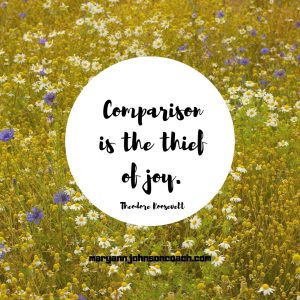 “A 92-year-old, petite, well-poised and proud man, who is fully dressed each morning by eight o’clock, with his hair fashionably combed and shaved perfectly, even though he is legally blind, moved to a nursing home today. His wife of 70 years recently passed away, making the move necessary. After many hours of waiting patiently in the lobby of the nursing home, he smiled sweetly when told his room was ready.
“A 92-year-old, petite, well-poised and proud man, who is fully dressed each morning by eight o’clock, with his hair fashionably combed and shaved perfectly, even though he is legally blind, moved to a nursing home today. His wife of 70 years recently passed away, making the move necessary. After many hours of waiting patiently in the lobby of the nursing home, he smiled sweetly when told his room was ready.
“As he maneuvered his walker to the elevator, I provided a visual description of his tiny room, including the eyelet sheets that had been hung on his window. ‘I love it,’ he stated with the enthusiasm of an eight-year-old having just been presented with a new puppy. Mr. Jones, you haven’t seen the room; just wait.’
That doesn’t have anything to do with it,’ he replied. Happiness is something you decide on ahead of time. Whether I like my room or not doesn’t depend on how the furniture is arranged…it’s how I arrange my mind. I already decided to love it. It’s a decision I make every morning when I wake up. I have a choice; I can spend the day in bed recounting the difficulty I have with the parts of my body that no longer work or get out of bed and be thankful for the ones that do.
“Each day is a gift, and as long as my eyes open, I’ll focus on the new day and all the happy memories I’ve stored away… Just for this time in my life.” – Well Built: Inspiring Stories from the Boardroom to the Frontline By Bob Buck
I enjoyed reading this short story because it highlights an important law of success –
it happens in our minds first.
The other day Don did something that ruffled my feathers! I felt the anger well up and the inner pout come out. As I stood at the sink fuming, I realized that I had a choice to make. I could be angry and let Don know it or I could flush what was bothering me and just be happy. I decided to let it go and just be happy.
It wasn’t easy. That negative emotion wanted to run around and around in my brain replaying whatever it was that was upsetting me. I had to find a way to shove it out for good. I choose to be grateful. I began thinking up a list in my mind of all the things that I like about Don, all the fun and pleasant memories that I have of the two of us. Guess what, the negative feeling dissipated and I felt happy.
As we parent our families there is plenty to stress us especially during these trying days of Covid-19 and social distancing. Children aren’t perfect, we aren’t perfect, systems and tools don’t always work the way we want them to, sad things happen, bad things happen, relationships can turn bumpy, our family culture is often a poignant mirror of all the work we need to do. Despite all this we can choose to be happy. The truth is that happiness is an attitude. It’s not something created by outside circumstances, but instead is completely within our control.
Here are a few techniques
to help you choose happy when you’re tempted to choose something else.
1. Be grateful – This tops my list. It works every time. When I am feeling really put out or downtrodden, if I begin thinking about all the wonderful parts of my life, I just can’t help but perk right up. If you need to, write a list. Seeing it in black and white helps.
2. Take care of yourself – What are some of the small things in life that make you feel good? Do one daily. Take a short walk, write for a few minutes in your journal, have a short meditation, watch the sunset, hug a child. For me, it is a hot shower just before bed every day. I love it! Whatever reminds you that you are a human being and not a human doing will improve your outlook on life.
3. Be creative – Creativity and self-expression generate happiness. Schedule some creative time each day, even if it’s just a few minutes of writing, painting, baking, or sewing.
4. Move – Move a little every day to stay happy. It releases endorphins, the feel-good hormone.
5. Read and listen to inspirational material – It helps to be reminded of positive thoughts and positive attitudes. Read in your spiritual cannon or get a small book of positive, inspirational thoughts and keep it by your desk. Read one or two thoughts each day. Every morning I have a private devotional. I have a short list of songs that move my heart. I choose one to listen to every morning, then I pray. I read a few verses in my spiritual cannon. It makes a difference!
7. Contribute – Serve others. Think about the needs of others. Make a difference. It boosts your self-esteem, your gratitude, and feeling of well-being.
8. Be in nature – Nature rejuvenates and restores the human spirit. Give yourself the gift of visiting it frequently. Take a walk or just sit in the sun in your back yard and rest for a few minutes! : )
No matter how many wonderful things you do to create a positive, happy, satisfied life, you could still end up in unhappy stressed situations. Ultimately, happiness, gratitude, and a feeling of satisfaction is a choice.



 When my grandson, Jack, was three, Mary was just one and Maggie was five, I taught them about germs and hygiene. It was chaotic. Mary was on the table and into everything. Jack wanted his way. Maggie, of course, needs LOTS of help. Whew. Did they get any of that? Despite all my preparation and planning, I was sure that the whole thing had been a big fat flop!
When my grandson, Jack, was three, Mary was just one and Maggie was five, I taught them about germs and hygiene. It was chaotic. Mary was on the table and into everything. Jack wanted his way. Maggie, of course, needs LOTS of help. Whew. Did they get any of that? Despite all my preparation and planning, I was sure that the whole thing had been a big fat flop!
 As a parent or grandparent do you ever
As a parent or grandparent do you ever 

 decided to make a change. It wasn’t easy because of the past. People weren’t sure they could trust him and so they didn’t want to risk giving him a chance. He just kept looking and eventually, he found a man and a company that employed him.
decided to make a change. It wasn’t easy because of the past. People weren’t sure they could trust him and so they didn’t want to risk giving him a chance. He just kept looking and eventually, he found a man and a company that employed him.  education or the degree that thrills me. It’s that he was kind to himself, trusted himself, set a goal and then accomplished it.
education or the degree that thrills me. It’s that he was kind to himself, trusted himself, set a goal and then accomplished it.

 I’ve been married to the same man for 48 years. We celebrated this milestone in May of 2019. This has caused me to pause and contemplate the last fifty-one years. That’s how long I’ve known my husband, Don. I fell in love with him because he was handsome and romantic. One day he showed up at my door with a car full of roses. He had cleaned out a street vendor! But that isn’t why I’ve stayed with him.
I’ve been married to the same man for 48 years. We celebrated this milestone in May of 2019. This has caused me to pause and contemplate the last fifty-one years. That’s how long I’ve known my husband, Don. I fell in love with him because he was handsome and romantic. One day he showed up at my door with a car full of roses. He had cleaned out a street vendor! But that isn’t why I’ve stayed with him. me. He often goes out of his way to do something he knows I need to have done. He looks at me when I am talking to him. He takes the time to listen. He doesn’t always get what I am saying but he listens and tries. : ) He often puts his needs ahead of mine.
me. He often goes out of his way to do something he knows I need to have done. He looks at me when I am talking to him. He takes the time to listen. He doesn’t always get what I am saying but he listens and tries. : ) He often puts his needs ahead of mine. There is a space between stimulus and response. Sometimes it’s so narrow that you would swear it isn’t even there. But it is and you can learn to recognize the moment of choice. You will still respond poorly for a time, but eventually, that space between stimulus and response will get wider and you will have time to choose a better response. I promise this is true!
There is a space between stimulus and response. Sometimes it’s so narrow that you would swear it isn’t even there. But it is and you can learn to recognize the moment of choice. You will still respond poorly for a time, but eventually, that space between stimulus and response will get wider and you will have time to choose a better response. I promise this is true!
 Recently I was taken back in time as I listened to a soundtrack by John Denver. He was a singer-songwriter from the1960s through the 1990s. I was a young teen when he began his career and I enjoyed his music.
Recently I was taken back in time as I listened to a soundtrack by John Denver. He was a singer-songwriter from the1960s through the 1990s. I was a young teen when he began his career and I enjoyed his music.
 Here is the definition of shame – a painful feeling of humiliation or distress caused by the consciousness of wrong or foolish behavior.
Here is the definition of shame – a painful feeling of humiliation or distress caused by the consciousness of wrong or foolish behavior.
 My husband bought a pergola for our patio. It was a necessity because the west sun is so hot that you can’t even turn the doorknob in mid-summer.
My husband bought a pergola for our patio. It was a necessity because the west sun is so hot that you can’t even turn the doorknob in mid-summer. own. Don did one but with a replaced hip he knew he could
own. Don did one but with a replaced hip he knew he could The day I needed to drill into cement and put in long screws and tighten them down I found myself in the same dilemma. But I remembered that pill experience which I had had only a few months earlier.
The day I needed to drill into cement and put in long screws and tighten them down I found myself in the same dilemma. But I remembered that pill experience which I had had only a few months earlier.

 I got a fabulous call recently from a dear friend. She wanted to tell me about her three grandchildren, twins, aged 8 and one, aged 5. They have been playing a game with their grandma when she takes them to school 3 times a week. It’s called, Embellish the Story. One of them begins the story and then they each take a turn adding to it. In other words, they embellish it.
I got a fabulous call recently from a dear friend. She wanted to tell me about her three grandchildren, twins, aged 8 and one, aged 5. They have been playing a game with their grandma when she takes them to school 3 times a week. It’s called, Embellish the Story. One of them begins the story and then they each take a turn adding to it. In other words, they embellish it.
 I love to write but don’t always want to prepare and post a new article every week. I enjoy posting something of value every day on Facebook but sometimes I would rather do other things. However, I do both as perfectly as I can because I have a goal and to reach it, I have learned that there must be consistency in my effort, for as long as it takes.
I love to write but don’t always want to prepare and post a new article every week. I enjoy posting something of value every day on Facebook but sometimes I would rather do other things. However, I do both as perfectly as I can because I have a goal and to reach it, I have learned that there must be consistency in my effort, for as long as it takes. important in parenting because it nearly always takes until a child leaves home and creates their own life to see the results of our efforts. While they’re growing, it’s tempting to let ourselves feel failure because we don’t see our child as neat, quiet, mannerly and so forth. We often see a mud-covered child, a snitched cookie behind a back, spilled milk on the kitchen floor, or we hear voices’ complaining that it’s not their fault or “it’s my turn.”
important in parenting because it nearly always takes until a child leaves home and creates their own life to see the results of our efforts. While they’re growing, it’s tempting to let ourselves feel failure because we don’t see our child as neat, quiet, mannerly and so forth. We often see a mud-covered child, a snitched cookie behind a back, spilled milk on the kitchen floor, or we hear voices’ complaining that it’s not their fault or “it’s my turn.”